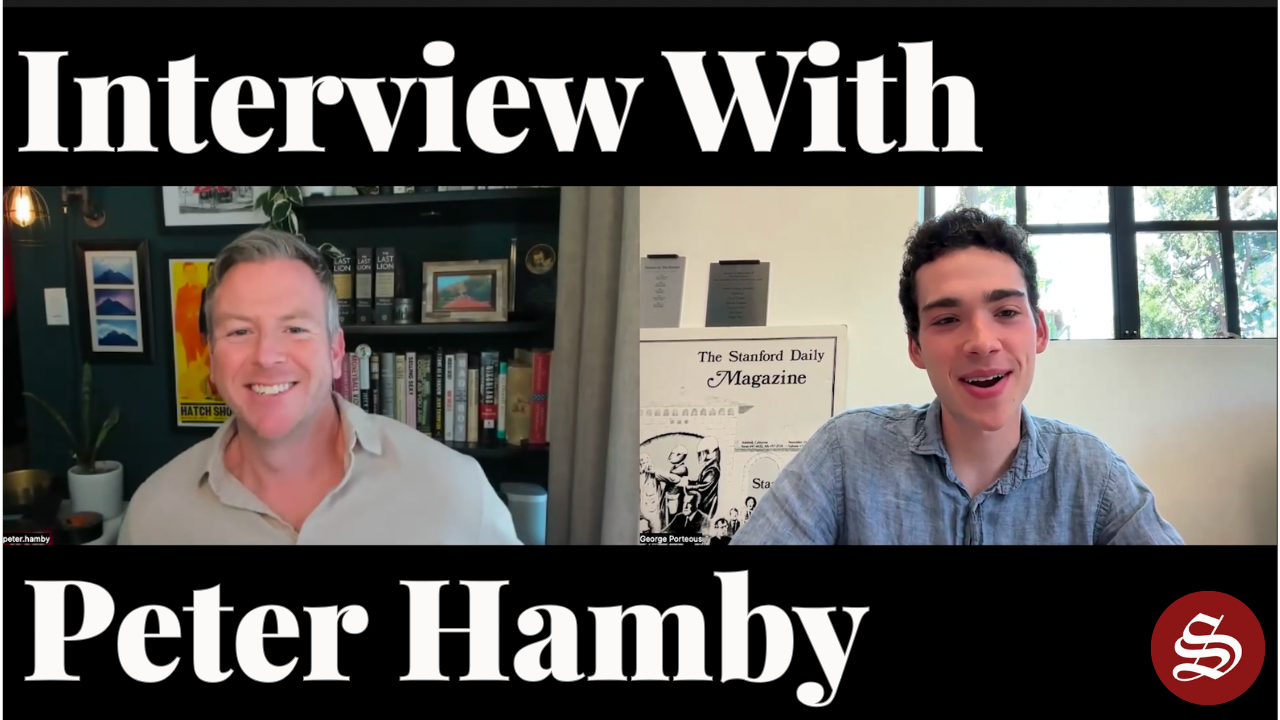- MediaMorph
- Posts
- MediaMorph Edition 53 - by HANA News
MediaMorph Edition 53 - by HANA News
How publishers can beat Perplexity at its own game
MediaMorph Edition 53 - by HANA News
How publishers can beat Perplexity at its own game
Was this newsletter forwarded to you? Sign up here
The written-by-a-human bit
I am skipping over the biggest story in AI and journalism this week—the Chicago-Sun Times debacle, in which fictitious summer reading suggestions made it into print, first reported by 404 Media. This is not because I am shy of an AI car crash, but because it was a blatant human error. The closer AI gets to the front line of published material, the more critical human-in-the-loop becomes. It's that simple—don’t publish without human oversight.
I am more excited about seeing clients move from an “AI efficiency” mindset to an “AI product” mindset. The winners in this race will be those who don’t just see AI as a time and cost saver but as a growth and revenue driver.
The best example out of the gate is the deployment of custom AI chatbots trained on proprietary archive data. This is an obvious internal tool, but the more ambitious publishers like The Washington Post have introduced a version for paying subscribers. Ask The Post has access to articles going back to 2016, and after a soft launch, is being very transparent about limitations and is cautious not to veer out of its content comfort zone.
Uptake is often slow, but as users become more familiar with and enamoured by a Perplexity-type experience, queries will follow. With the queries come increased engagement, advertising opportunities, more loyalty, and a wealth of data.
Why stop there? I advocate for every article having a selection of follow-up questions that lead to a deeper dive. And why not introduce a voice chat interface?
For the AI sceptics, we find that a dedicated RAG solution can now mitigate most hallucinations. Our more enlightened clients are now in a rush to get ahead of the curve with a Perplexity-style results page, but with more obvious citations and attribution.
Chat with us today to learn more about a bespoke custom chatbot for your users.
Mark Riley, CEO Mathison AI
Hi
AI will be a substantial competitive advantage for those who master it. But most are still struggling with adoption because rolling out a chatbot or copilot isn’t enough to get people using it.
At Mathison AI, we are helping CEOs like you rapidly discover and prototype high-impact AI use cases tailored to your business.
We’re currently working with global and local enterprises to identify areas where AI can drive real operational value — from automation and cost savings to entirely new product ideas.
If you’re exploring AI and want a clear, low-risk way to get started, I’d love to share how we approach it through fast education sessions and hands-on prototyping.
AI and Media and Journalism
Why Media Sites Should Have Their Own Chatbots ($ paywalled) The Media Copilot Substack - November 12, 2024 The Washington Post is enhancing reader engagement through an innovative AI assistant that offers personalised and interactive experiences, allowing for meaningful dialogue and tailored responses. This shift from traditional "chatbots" to a more sophisticated technology fosters loyalty among users and positions the publication as a leader in utilising AI for deeper connections with its audience. |
The new skills journalists need in the era of generative AI Press Gazette - May 20, 2025 As generative AI technologies reshape journalism, educators must equip students with both technical skills and an understanding of the ethical implications of AI tools. This includes teaching effective prompt crafting for Large Language Models and navigating the challenges of accuracy and responsibility in the evolving media landscape. |
How this year’s Pulitzer awardees used AI in their reporting For the second year in a row, the Pulitzer Prizes required applicants to disclose their use of artificial intelligence, with one winner and three finalists acknowledging AI's role in their work. This initiative underscores the increasing impact of AI on journalism and creative fields, prompting vital discussions about transparency, ethics, and authenticity in storytelling. |
Media Briefing: Less clicks, more problems: What Google’s AI Mode means for publishers Digiday - May 22, 2025 Google's recent integration of ads into its AI Mode for search and shopping is raising concerns among publishers, who fear that the trend of "zero-click" searches will further diminish their traffic and ad revenue. As they adapt to this evolving landscape, many are shifting focus from traditional metrics to subscription conversions while grappling with the challenges posed by AI-generated content and declining referral traffic. |
News/Media Alliance says Google’s AI takes content 'by force' Mashable - May 22, 2025 The News/Media Alliance has accused Google of "theft" for its new AI Mode feature in Search, which delivers information directly to users without directing them to publishers' articles, thus harming their traffic and revenue. This criticism echoes a broader concern among major publishers about AI's impact on original content creators, with calls for legislative action to protect their work. |

Journalists at Chicago Newspaper "Deeply Disturbed" That "Disaster" AI Slop Was Printed Alongside Their Real Work Futurism - May 21, 2025 The Chicago Sun-Times faced significant backlash after mistakenly publishing a list of fictitious book titles generated by AI, leading to concerns over misinformation and the integrity of journalism. This incident highlights ongoing tensions in the industry regarding the use of AI in news production and its implications for media credibility and the livelihoods of human journalists. |
Fake summer reading list exposes AI threat to journalism Unherd - The Chicago Sun-Times and Philadelphia Inquirer faced backlash after including a controversial book in their summer reading list, prompting accusations of insensitivity from readers. Both newspapers issued apologies and committed to improving their editorial processes, highlighting the importance of thoughtful content curation in media. |
Journalism's Slop Crisis Started Long Before That AI-Generated Summer Insert Defector - May 21, 2025 A controversy erupted when the Chicago Sun-Times and The Philadelphia Inquirer published a summer reading list filled with fictitious titles generated by ChatGPT, sparking criticism over editorial standards and quality control. The incident underscores the growing challenge of distinguishing genuine journalism from low-quality, ad-like content in an era where local newspapers struggle to maintain their integrity amidst dwindling resources. |
Politico’s Newsroom Is Starting a Legal Battle With Management Over AI WIRED - May 22, 2025 The PEN Guild at Politico is gearing up for a pivotal legal battle over alleged violations of AI provisions in their contract, claiming the company deployed AI tools without proper notice, raising concerns about job impact and ethical standards in journalism. This dispute could establish crucial precedents for journalists' rights regarding AI usage, especially amidst increasing scrutiny of AI-generated content's accuracy and oversight. |
How the Southeast Missourian and Rust Communications are revolutionising journalism with AI Discover how Cape Girardeau's PubGen.ai, in collaboration with Rust Communications, is revolutionizing local journalism by integrating AI tools like "Eddie" to enhance reporting quality and efficiency, enabling journalists to focus on community-driven stories while preserving the essence of local news. With a significant boost in online traffic and subscriptions, this innovative approach showcases the potential of advanced technology to support and transform small-town media. |

Artificial intelligence policy for The Nevada Independent The Nevada Independent - May 19, 2025 The Nevada Independent highlights the essential role of human oversight in journalism while embracing AI to enhance reporting, ensuring all AI-assisted content undergoes thorough review for accuracy and ethics. With a commitment to transparency and continuous training, the outlet prohibits direct AI content production to maintain journalistic integrity. |

Peter Hamby, Host of Snapchat’s ‘Good Luck America,’ discusses journalism and AI The Stanford Daily - May 22, 2025 In an engaging interview with The Stanford Daily, Peter Hamby, host of Snapchat’s "Good Luck America," shares his insights on the evolving media landscape and the challenges facing journalists today, emphasising the significant impact of social media on news consumption. Conducted by George Porteous, a passionate History and Creative Writing student, the conversation delves into the future of journalism in a rapidly changing environment. |
AI and Academic Publishing
Weekend reads: French agency’s research director sanctioned; AI data woes at MIT; is disruptive science over? Retraction Watch - May 24, 2025 This week at Retraction Watch, we addressed critical issues in academic publishing, including a journal with a fake editorial board and the retraction of a study by Genentech following our inquiry. We also highlighted the integrity crisis in research, rising concerns about authorship practices, and the impact of AI on academic quality amidst growing scrutiny of the scientific community. |
Beyond Open Access: Improving Quality in Research Psychology Today - May 19, 2025 The academic publishing process faces challenges like gatekeeping and inaccessibility, but Kulldorff (2025) proposes four pillars for reform, including open access and peer review. A fifth pillar is suggested to prioritise clarity over analytical complexity, ensuring research remains transparent and relevant for public understanding. |
China Dominates Global AI Research in 2024 for Seventh Year Running, Report Says China has solidified its dominance in AI research, publishing 273,900 papers in 2024—29% of the global total—while focusing on "AI for Science" across various fields; however, the US still leads in research impact with a higher citation rate in top journals. This rapid growth, reflected in the doubling of AI paper output since 2015, showcases the transformative potential of artificial intelligence in contemporary science and industry. |
Academy partnership with CSIRO looks to the future of scientific publishing Science - The Australian Academy of Science and CSIRO have renewed their partnership for five more years to support CSIRO’s 15 scientific research journals, which publish over 1,000 high-quality articles annually. This collaboration emphasises the importance of rigorous peer review, international research, and open science in addressing global challenges. |
Why I stopped submitting my work to for-profit publishers Physics World - May 21, 2025 The academic publishing landscape is facing a crisis as the demand for peer reviewers grows amid an explosion of published articles, leading to concerns about quality and recognition. Many researchers, including those in quantum physics, are advocating for change, and there is a call to reconsider our engagement with for-profit publishers that prioritise profits over scientific advancement. |
Enago Launches DocuMark: A Breakthrough Tool that Redefines How Universities Address AI-Assisted Student Work Fox4kc - A new platform empowers students to take responsibility for their AI use in academic work, shifting the focus from monitoring to ethical engagement. By assisting faculty in identifying AI-generated content, it fosters a collaborative learning environment that promotes honesty and accountability. |

High Impact Review Article Writing Workshop Using AI Tools – UTM NewsHub UTM - May 17, 2025 The Faculty of Artificial Intelligence at Universiti Teknologi Malaysia recently hosted an insightful online session, "FAI Academic Publishing 101: High-Impact Review Paper Using AI Tools," led by Dr. Husna Hafiza R. Azami, aimed at empowering participants with strategies for crafting impactful review articles and navigating the complexities of publishing in high-impact journals. With a focus on AI tools and ethical writing practices, the initiative fosters a culture of academic excellence among UTM staff, students, and researchers. |
This newsletter was partly curated and summarised by AI agents, who can make mistakes. Check all important information. For any issues or inaccuracies, please notify us here
View our AI Ethics Policy



